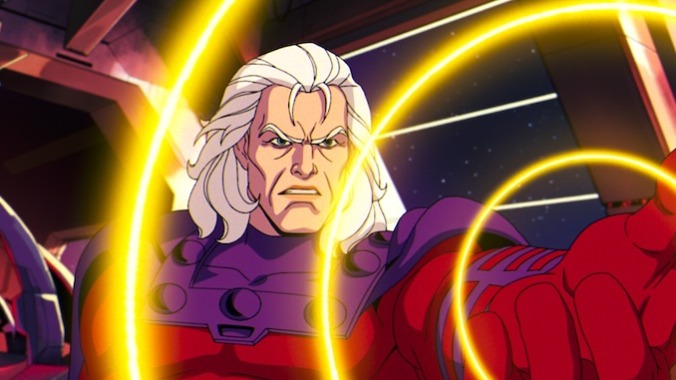What the Marvel Cinematic Universe Can Learn From the Success of X-Men ’97
Photo Courtesy of Disney+

Long before Tony Stark escaped that cave and Steve Rogers quadrupled the size of his pecs, the X-Men were fighting the good fight onscreen in a cinematic universe that predated the MCU by a number of years. But now that Disney and Fox have merged, Marvel’s merry band of mutants will soon join the MCU in live-action and have a chance to redeem the X-Men brand following 2019’s Dark Phoenix, a movie so bad that it may or may not have been responsible for COVID starting the following year.
Except, the X-Men have already been redeemed to anyone with eyes and a Disney+ subscription. The long-awaited sequel to X-Men: The Animated Series (aka The Best Cartoon Of All Time™), finally arrived this year with a mighty bid to take the crown and become the new Best Cartoon Of All Time™. Whether you agree that X-Men ’97 is an omega-level threat in that vein might come down to personal taste, but it’s safe to say that the show has been an uncanny, even astonishing, success regardless, with newbies and diehard fans alike.
That means there’s even more pressure on the X-Men’s return to live-action. But the good news is that Marvel now has a new X-Men Bible to draw upon with proven success on screen. Because let’s face it, X-Men ’97 and the show that preceded it are already better than any other take on the X-Men to date (outside of the comics, of course). And before you start, yes, that does include the 1996 TV movie Generation X.
What became immediately apparent from the very first episode of X-Men ’97, and even in the trailer beforehand, was how the creators understood mutant powers, and more importantly, they understood how to use them creatively in jaw-dropping, meme-friendly ways that the MCU could only dream of.
Watching Gambit ride Wolverine and kinetically charge up his claws with the Gumbo Special—or Sparkle Claws, as I like to call it—got fans more excited than Morph in a shower with Logan. And the show didn’t stop there. From Storm’s glass tornado and Bishop’s super-charge to Cyclops’s one-two optic punch and Jubilee’s nuclear plasma wheels (watch out, Bastion), it’s clear the writers and animators alike know these characters inside-out. Don’t get us started on Morph’s fan-pleasing cameo picks or our first glimpse of Nightcrawler’s big old Bamf from a first-person perspective.
That alone doesn’t make a great show though, no matter how impressive each of these individual watercooler moments might be. All too often, the MCU inevitably descends into a mindless, FX-fueled battle that forgets the characters and the grounding of its story. But that’s never the case with X-Men ’97. Although balancing an ensemble is never easy, the X-Men’s animated return makes canny use of its tight runtime each week to flesh out multiple characters at once, giving them each their time to shine brighter than Dazzler at Coachella.
-

-

-

-

-

-

-

-

-

-

-

-

-

-

-

-

-

-

-

-

-

-

-

-

-

-

-

-

-

-

-

-

-

-

-

-

-

-

-

-








































